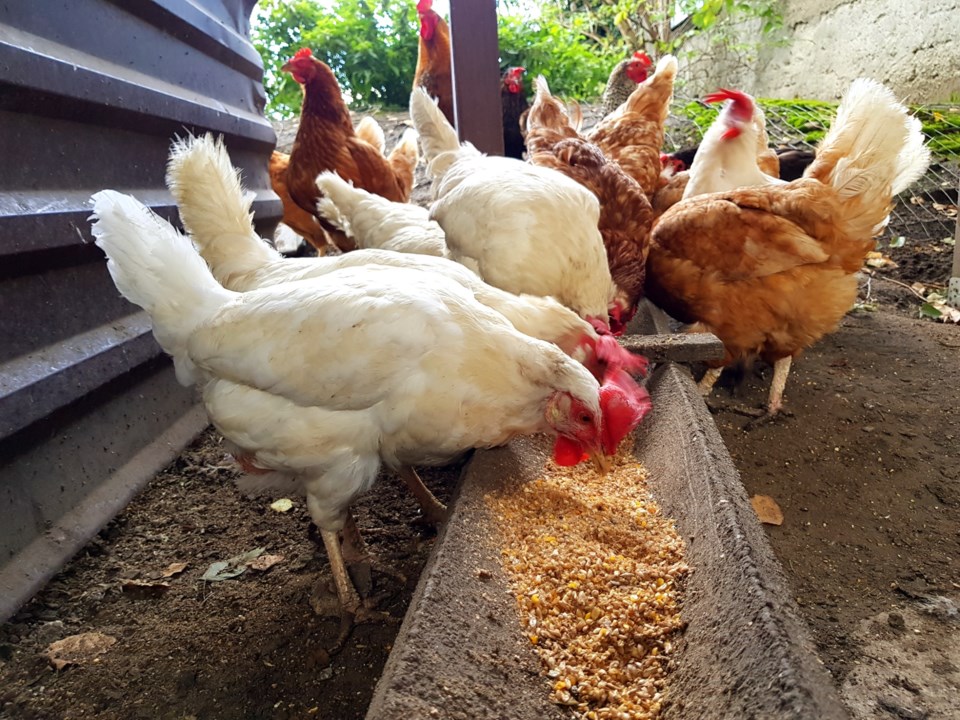North Bay City Council will vote during Tuesday's regular meeting on how to proceed with the rekindled public interest in keeping backyard hens on properties within the city's limits.
Councillor Marcus Tignanelli plans to table a motion that would "investigate and prepare amendments to Animal Control By-Law 151-93 to allow and regulate backyard chickens in residential properties within the City of North Bay."
"Council received a very professional and thoughtful request to look into the framework for a backyard hen program," says Tignanelli. "This motion is a commitment to formally researching this, creating a framework and coming back to council with an official recommendation. At that point, it would be up to council to approve or deny the regulated backyard hen program."
If the majority of Council favours Tuesday's motion, it will "direct the By-law Enforcement Coordinator to prepare a Report to Council regarding the implementation of a Backyard Chickens By-law and necessary amendments to existing by-laws in the City of North Bay for information purposes."
In a presentation at the previous meeting of Council, backyard hen proponents Jim and Emma Wilson, who were forced to surrender their hens due to the by-laws, cited several municipalities that have successfully introduced legislation surrounding the keeping of the animals, used for educational purposes and to provide fresh eggs for consumption.
See original story: Meet North Bay's backyard chicken outlaws
If Council ultimately decides to proceed, Tignanelli favours regulations prohibiting roosters, while allowing a maximum of four hens. Residents will not be permitted to raise birds for meat nor sell their eggs. Those who opt to keep backyard hens shall have adequately sized, lockable coops with roofs and nest boxes and must allow the City of North Bay to inspect the enclosure.
Jim Wilson says their presentation speaks for itself and points to the direction Vancouver has taken in its backyard chicken policies.
"Marcus has been kind enough to keep us updated with the progress. We're happy to see that there is interest in considering what this could look like in our region and hope that we as a community will be able to benefit from all of the great work that has already been done by others in this regard," says Wilson.
Meanwhile Coun. Scott Robertson, who seconded the motion, sees the backyard hen debate as a microcosm — an example of one among hundreds of similar issues impeding progress and economic development in North Bay.
Robertson says, although the backyard hen question has little effect on his day-to-day affairs, the fact residents are passionate about it is enough for him to support a closer look.
"Maybe we're going to support backyard hens, maybe we're not," says Robertson. "There could be a whole lot of good reasons why this is a bad idea. But, there's no reason why we can't explore it."
Tignanelli observes major urban centres, including Toronto and Vancouver "allow backyard hen programs with very robust regulations. With more and more families looking for local and sustainable food options I don’t believe we should put arbitrary red-tape preventing a family from providing fresh eggs for themselves."
He adds the expected wave of complaints surrounding the backyard chicken pilot project in Toronto has simply not materialized.
"We have to be willing to do things differently than we've done in the past," says Robertson. "We have to be willing to offer the same kind of medium-city lifestyle that's being offered in other places. That's our business — attracting people. And, in order to be able to do that, we have to have the same quality of life and access to services other medium-sized cities have."



